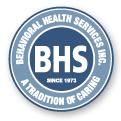Medical Detoxification is provided in a residential setting with 24-hour medical supervision. The process is designed to make the client as comfortable as possible during withdrawal from alcohol and other drugs of abuse, with treatment lasting on average 10 – 14 days. Clients receive education about addiction, are introduced to self-help programs such as Alcoholics Anonymous and Narcotics Anonymous, and receive referrals for continuing care and other community support. Residential Substance Abuse Treatment provides the opportunity for clients to work intensively on life issues which, if left unaddressed, often lead to relapse to substance abuse. While the average length of treatment (3 – 6 months) is generally not enough to bring full resolution to these issues, clients receive enough education and therapeutic intervention to learn tools which will assist in long term resolution of issues surrounding family and social functioning, legal problems, medical and psychiatric care, and educational and vocational concerns. Clients are taught how, and encouraged to establish a recovery support network outside of the treatment milieu in order to assist them in their continuing recovery efforts upon completion of the program. Outpatient Substance Abuse Treatment is offered at differing levels of intensity depending on the needs of the individual client. Treatment is designed to either continue work from the residential setting, or for those clients whose life issues are not as severe or numerous as that of clients in a residential setting. The prime focus in outpatient treatment is relapse prevention, with an emphasis on incorporating recovery tools and values in one’s daily life. Treatment lasts between 3 – 9 months, with clients participating in treatment activities between 1 – 5 days each week. Drug Court programs provide comprehensive, integrated behavioral health services that work in conjunction with the judicial system. The purpose of drug court programs is to stop the abuse of alcohol and/or other drugs and related criminal and civil judicial actions. The treatment team works in collaboration with judges, prosecutors, defense counsel, probation authorities, law enforcement, and an array of local service providers. Treatment is usually multi-phased, and is typically divided into a stabilization phase, an intensive phase, and a transition phase. During each phase, the treatment team is responsible for assessing the needs of the person served within the parameters of the legal sanctions imposed by the drug court. The treatment team, in a case management function, either directly provides or arranges for the provision of screening and assessment, detoxification, intensive outpatient treatment, outpatient, residential treatment, pharmacotherapy, self-help and advocacy, relapse prevention, and education regarding alcohol and other drugs.

